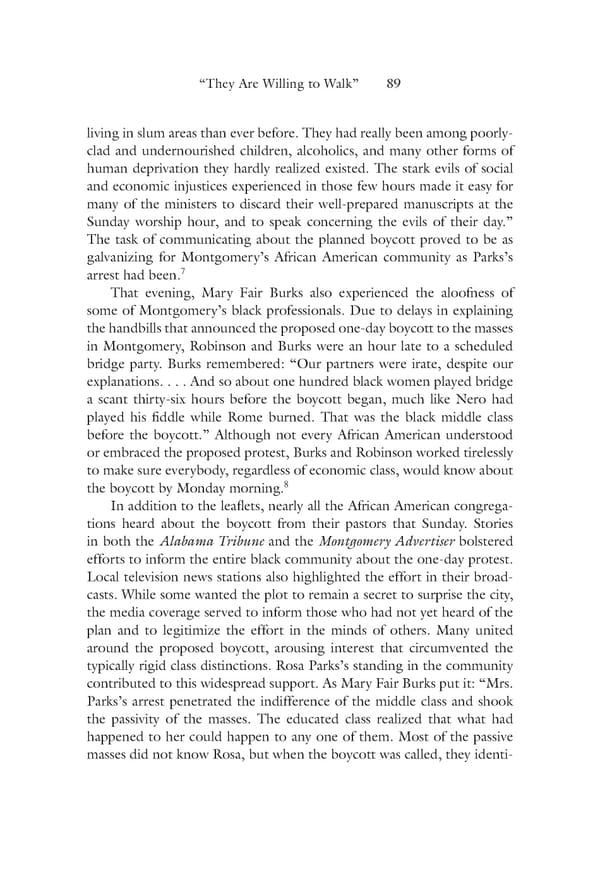“They Are Willing to Walk” 89 living in slum areas than ever before. They had really been among poorly- clad and undernourished children, alcoholics, and many other forms of human deprivation they hardly realized existed. The stark evils of social and economic injustices experienced in those few hours made it easy for many of the ministers to discard their well-prepared manuscripts at the Sunday worship hour, and to speak concerning the evils of their day.” The task of communicating about the planned boycott proved to be as galvanizing for Montgomery’s African American community as Parks’s 7 arrest had been. That evening, Mary Fair Burks also experienced the aloofness of some of Montgomery’s black professionals. Due to delays in explaining the handbills that announced the proposed one-day boycott to the masses in Montgomery, Robinson and Burks were an hour late to a scheduled bridge party. Burks remembered: “Our partners were irate, despite our explanations. . . . And so about one hundred black women played bridge a scant thirty-six hours before the boycott began, much like Nero had played his fiddle while Rome burned. That was the black middle class before the boycott.” Although not every African American understood or embraced the proposed protest, Burks and Robinson worked tirelessly to make sure everybody, regardless of economic class, would know about 8 the boycott by Monday morning. In addition to the leaflets, nearly all the African American congrega- tions heard about the boycott from their pastors that Sunday. Stories in both the Alabama Tribune and the Montgomery Advertiser bolstered efforts to inform the entire black community about the one-day protest. Local television news stations also highlighted the effort in their broad- casts. While some wanted the plot to remain a secret to surprise the city, the media coverage served to inform those who had not yet heard of the plan and to legitimize the effort in the minds of others. Many united around the proposed boycott, arousing interest that circumvented the typically rigid class distinctions. Rosa Parks’s standing in the community contributed to this widespread support. As Mary Fair Burks put it: “Mrs. Parks’s arrest penetrated the indifference of the middle class and shook the passivity of the masses. The educated class realized that what had happened to her could happen to any one of them. Most of the passive masses did not know Rosa, but when the boycott was called, they identi-
 Becoming King: Martin Luther King Jr. Page 109 Page 111
Becoming King: Martin Luther King Jr. Page 109 Page 111